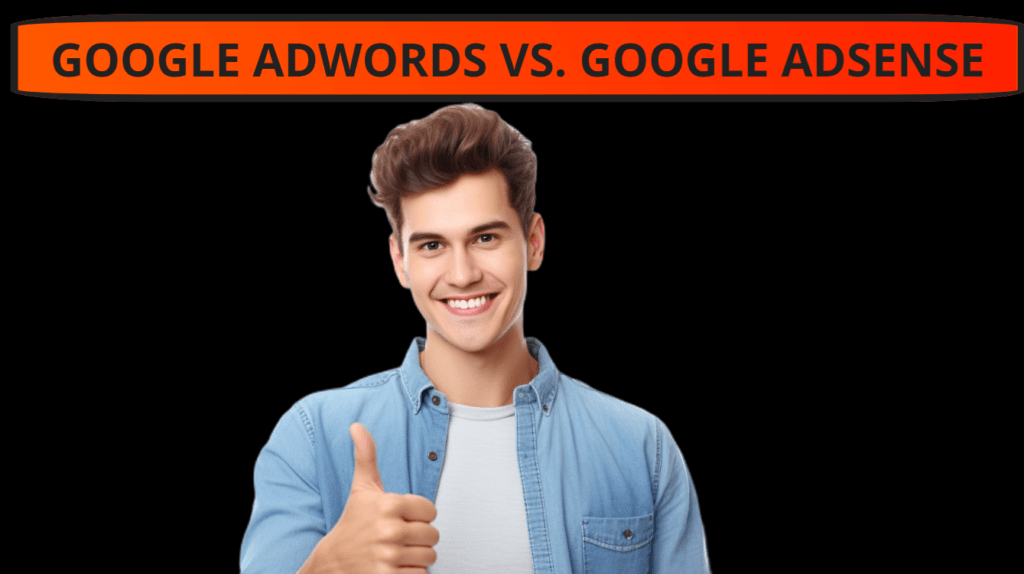Last updated on October 17th, 2024 at 07:32 am
Reading Time: 3 minutesIn the realm of online advertising, Google AdWords (now Google Ads) and Google AdSense are two powerful tools, each serving distinct purposes for businesses and website owners. Whether you’re looking to advertise your products or monetize your content, understanding the differences between these platforms is crucial for optimizing your online strategy. In this blog post, we’ll delve into the key differences, benefits, and use cases of Google AdWords and Google AdSense.

Contents
What is Google AdWords (Google Ads)?
Google AdWords, rebranded as Google Ads in 2018, is an online advertising platform developed by Google. It allows businesses to create ads that appear on Google’s search engine results pages (SERPs) and its extensive network of partner websites. Google Ads operates on a pay-per-click (PPC) model, meaning advertisers pay each time a user clicks on their ad.
Key Features of Google Ads:
- Search Ads: Appear on Google’s SERPs when users search for specific keywords.
- Display Ads: Visual ads shown on Google’s Display Network, including millions of websites, apps, and Google-owned properties.
- Video Ads: Displayed on YouTube and across Google’s video partner network.
- Shopping Ads: Showcase products directly in Google’s search results.
- App Promotion Ads: Designed to drive app downloads and engagement.
What is Google AdSense?
Google AdSense is a program that enables website owners and publishers to monetize their online content by displaying targeted ads. Unlike Google Ads, where advertisers create and pay for ads, AdSense allows publishers to earn money by hosting ads on their websites. Ad revenue is generated based on either impressions (CPM) or clicks (CPC).
Key Features of Google AdSense:
- Contextual Ads: Automatically display ads relevant to the content on your site.
- Customizable Ad Units: Publishers can choose from various ad formats and sizes to fit their website design.
- Performance Reports: Provides detailed insights into ad performance and earnings.
- Responsive Ads: Automatically adjust size to fit different screen sizes and devices.
Key Differences Between Google Ads and Google AdSense
Purpose:
- Google Ads: Used by advertisers to promote their products and services through paid ads.
- Google AdSense: Used by publishers to monetize their websites by displaying ads.
User Base:
- Google Ads: Businesses and marketers looking to drive traffic, generate leads, and increase sales.
- Google AdSense: Website owners, bloggers, and content creators looking to earn revenue from their online content.
Cost Model:
- Google Ads: Advertisers pay for clicks (PPC) or impressions (CPM) on their ads.
- Google AdSense: Publishers earn revenue from ad clicks (CPC) or impressions (CPM) generated on their site.
Control and Customization:
- Google Ads: Advertisers have full control over ad creation, targeting options, and budget management.
- Google AdSense: Publishers have limited control over the ads displayed but can customize ad placement and appearance.
Choosing the Right Platform for Your Needs
When to Use Google Ads:
- You have a budget for online advertising and want to reach a specific audience.
- Your goal is to drive traffic to your website, generate leads, or boost sales.
- You want detailed control over your advertising campaigns, including targeting, bidding, and ad creatives.
When to Use Google AdSense:
- You own a website or blog with significant traffic and quality content.
- Your goal is to generate passive income through ad revenue.
- You prefer a simple, automated way to monetize your content without actively managing ads.
Conclusion
Both Google Ads and Google AdSense are powerful tools within the digital advertising ecosystem, each catering to different needs and goals. By understanding their differences and unique benefits, you can make an informed decision on which platform aligns best with your objectives. Whether you’re looking to advertise or monetize, leveraging the right tool can significantly enhance your online presence and revenue potential.


